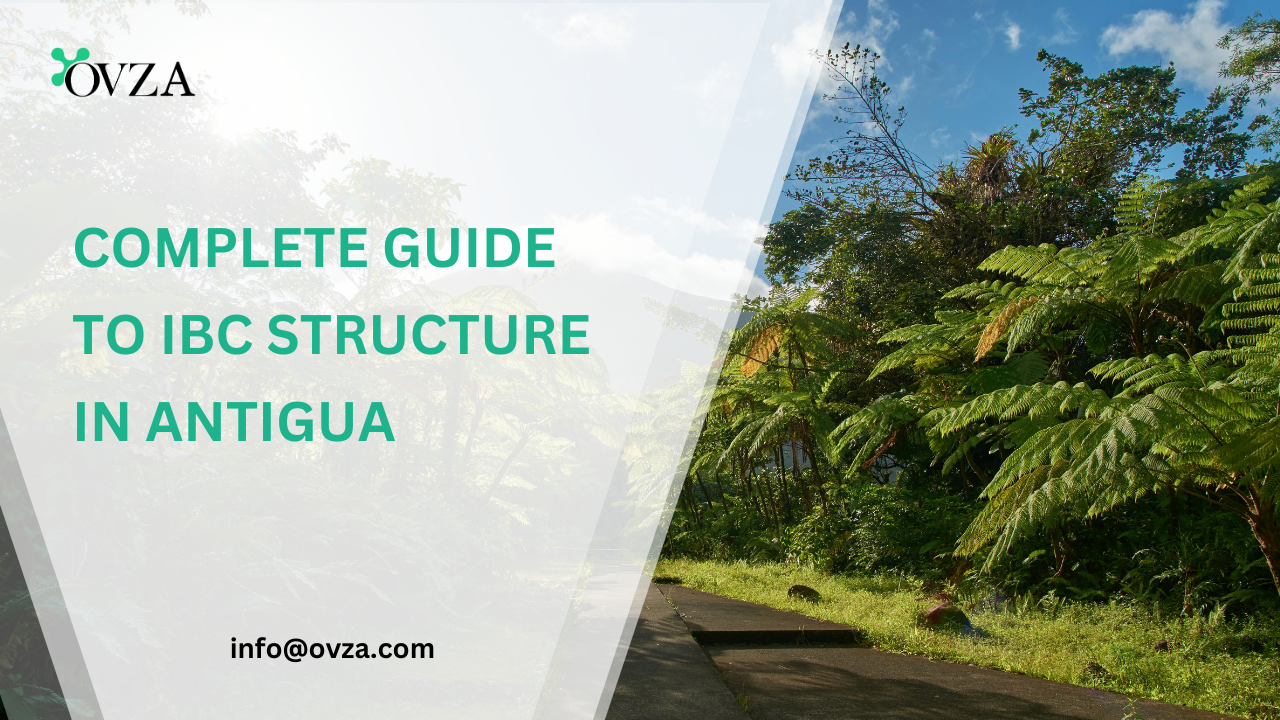Discover the key components of International Business Companies (IBCs) in Antigua and Barbuda. Learn about their structure, benefits, and compliance requirements.
Legal Framework for IBCs in Antigua and Barbuda
Antigua and Barbuda’s International Business Corporations Act is the primary legal foundation for the formation and operation of IBCs. The Act outlines the rights, obligations, and requirements for companies looking to incorporate as IBCs within the jurisdiction. The legal framework emphasizes confidentiality, tax benefits, and operational flexibility for foreign investors.
Key highlights of the legal framework include:
Confidentiality Protections: Shareholder and director information are not made publicly available, promoting privacy.
-Flexibility: No restrictions on the residency of shareholders or directors, which allows for 100% foreign ownership.
-International Recognition: Antigua and Barbuda is recognized globally, allowing IBCs to operate in multiple jurisdictions with legal credibility.
Ownership and Structural Requirements
One of the major advantages of establishing an IBC in Antigua and Barbuda is the flexibility in ownership and corporate structure. The International Business Corporations Act provides a favorable environment for foreign investors seeking to operate globally while benefiting from the country’s legal and tax advantages.
1. Shareholders
– Minimum Requirements: An IBC in Antigua and Barbuda requires only one shareholder, making it ideal for sole proprietors or small groups of investors.
– Foreign Ownership: IBCs can be entirely foreign-owned, with no restrictions on nationality or residency.
– Share Classes: Antigua and Barbuda allows for multiple share classes, including bearer shares, which can add flexibility to the company’s structure.
2. Directors
– Minimum Requirements: Only one director is required, simplifying the management structure. Directors do not have to be shareholders, offering flexibility for corporate governance.
– Residency: Directors are not required to reside in Antigua and Barbuda, appealing to international business owners.
– Board Meetings: There is no requirement for physical board meetings in Antigua and Barbuda, allowing directors to conduct meetings virtually from anywhere.
3. Registered Office and Agent
– Registered Office: All IBCs must have a registered office within Antigua and Barbuda, though operations may occur anywhere globally.
– Registered Agent: A registered agent in Antigua and Barbuda is also mandatory to handle official documents and liaise with the government.
Taxation Benefits for IBCs
A significant draw for establishing an IBC in Antigua and Barbuda is the tax incentives offered to international businesses. The jurisdiction provides a tax-efficient environment, allowing IBCs to operate with minimal tax burdens.
– Corporate Tax Exemptions: IBCs are exempt from corporate taxes on income generated outside of Antigua and Barbuda.
– Withholding Taxes: There are no withholding taxes on dividends, interest, or royalties paid to non-residents, making it an ideal choice for international business operations.
– Capital Gains Tax: IBCs are not subject to capital gains tax, which is beneficial for companies involved in asset sales or investments.
– Stamp Duty Exemption: There is an exemption from stamp duty on transactions related to shares and company assets, reducing operational costs.
Operational Flexibility and Restrictions
While Antigua and Barbuda offer an attractive environment for IBCs, there are specific operational guidelines and restrictions that companies must follow.
1. Activities
– Allowed Activities: IBCs are generally restricted to conducting business outside of Antigua and Barbuda. They can engage in various global business activities, including trade, asset management, holding company operations, and international banking.
– Prohibited Activities: IBCs cannot engage in business with residents of Antigua and Barbuda, nor can they own real estate in the country. This restriction is intended to separate local economic activities from international ones.
2. Accounting and Reporting
– Annual Returns: Unlike many other jurisdictions, Antigua and Barbuda do not require IBCs to file annual returns or public financial statements, which enhances privacy.
– Record-Keeping: Although there is no requirement for audited accounts, IBCs must maintain proper financial records at their registered office.
3. Licensing and Compliance
– Business Licenses: Certain activities, such as financial services, may require additional licensing and compliance with international regulations.
– Anti-Money Laundering (AML) Regulations: Although IBCs benefit from high levels of confidentiality, they must comply with Antigua and Barbuda’s AML policies to prevent illegal activities.
Advantages of Establishing an IBC in Antigua and Barbuda
Antigua and Barbuda’s IBC structure provides multiple advantages for international business owners:
– Confidentiality: Strong privacy protections ensure that ownership and management details remain confidential, a significant advantage for those seeking privacy.
– Tax Efficiency: Extensive tax exemptions allow companies to operate with low tax burdens, making it an ideal jurisdiction for asset management and holding companies.
– Ease of Formation: A single shareholder and director are required, streamlining the incorporation process.
– Global Business-Friendly: With no residency requirements, IBCs cater to foreign investors looking to establish a global footprint.
Establishing an International Business Company in Antigua and Barbuda offers a strategic advantage for international business owners. With favorable tax policies, confidentiality protections, and operational flexibility, IBCs in Antigua and Barbuda are ideal for investors seeking a tax-efficient and private business structure. This guide outlines the essential aspects of forming and structuring an IBC in Antigua and Barbuda, providing potential investors with the insights needed to make informed decisions.
Whether you’re looking to set up a holding company, engage in asset management, or expand your business globally, Antigua and Barbuda’s IBC structure presents a unique opportunity to optimize your operations while enjoying significant tax and legal benefits













